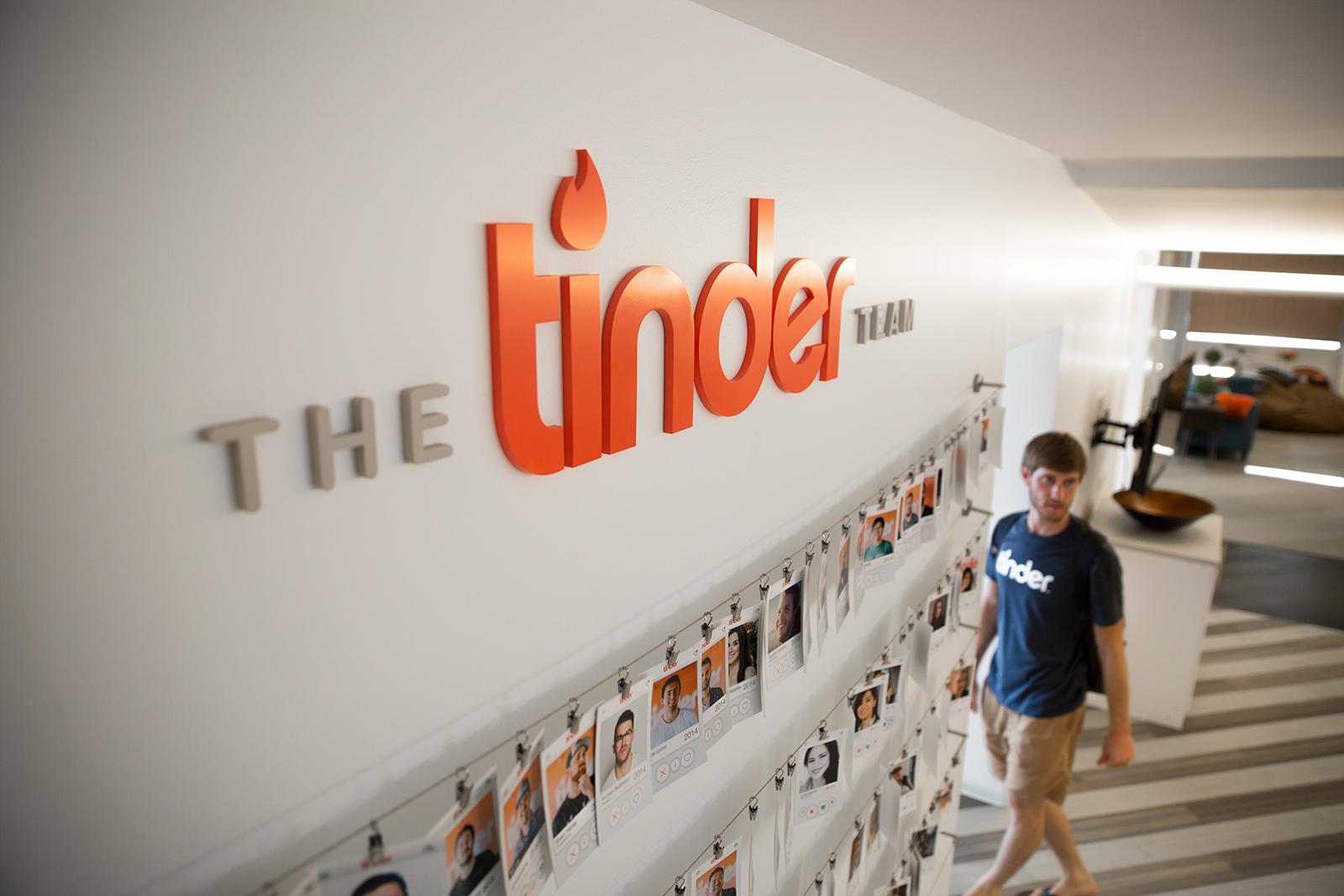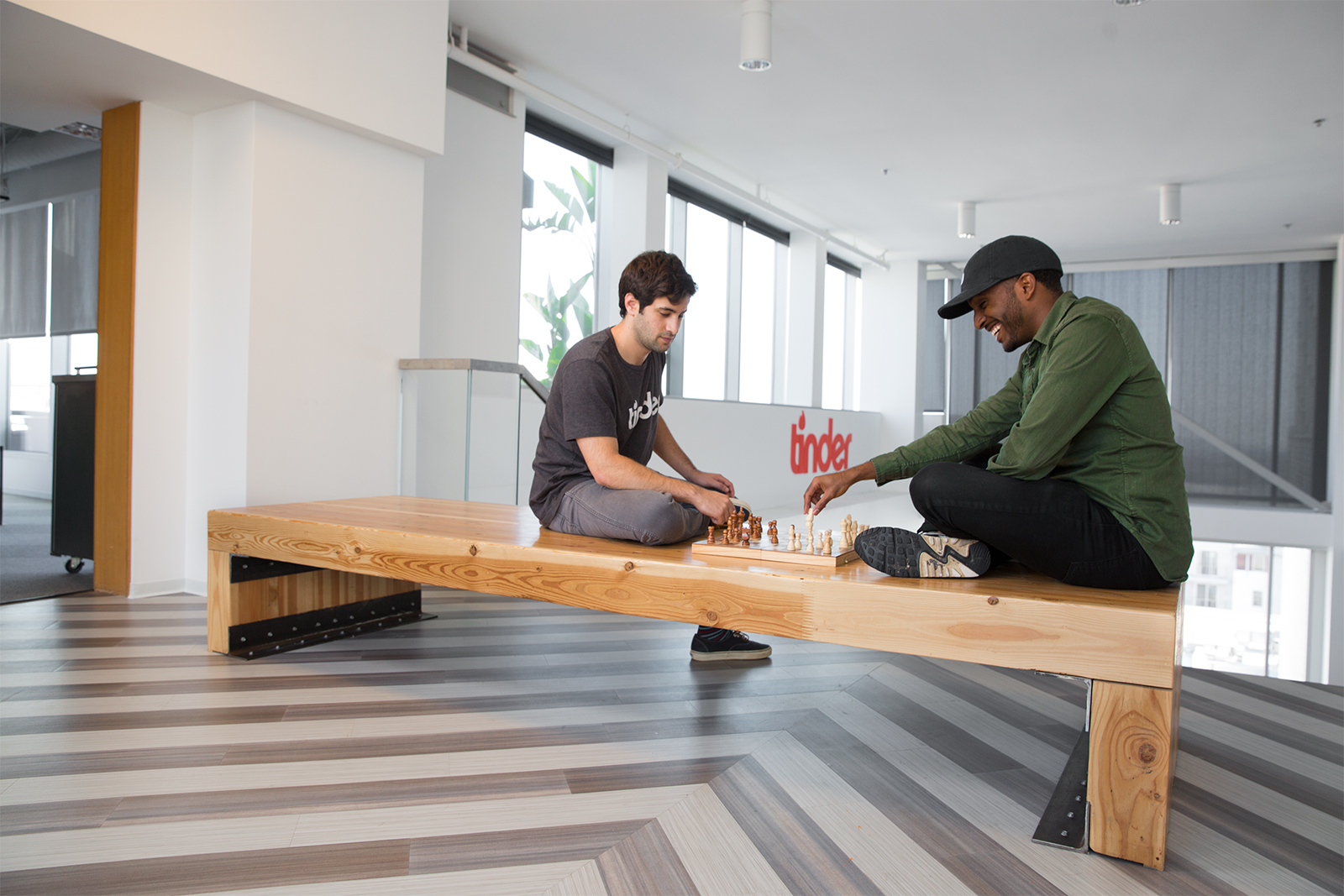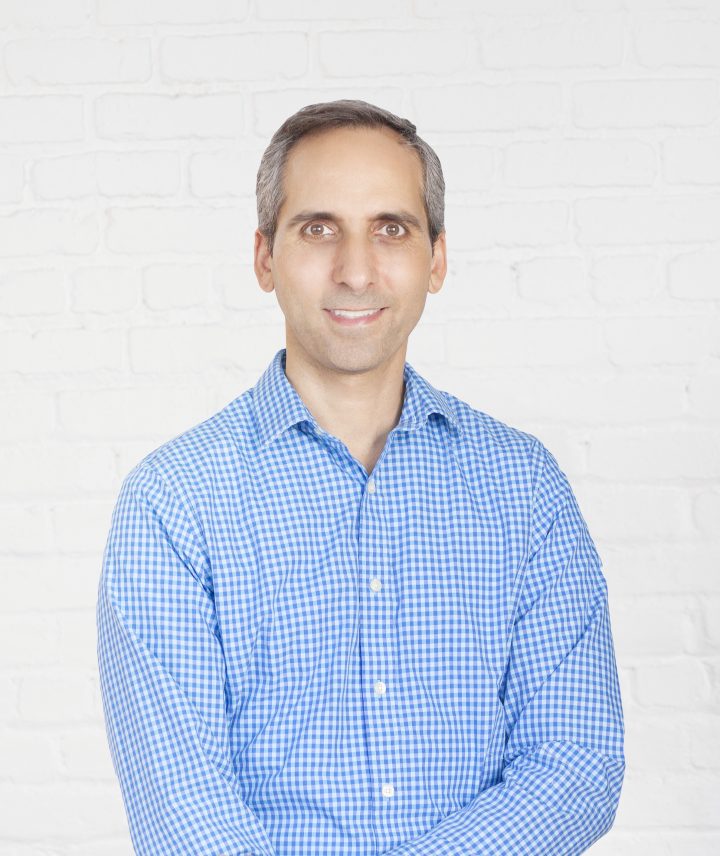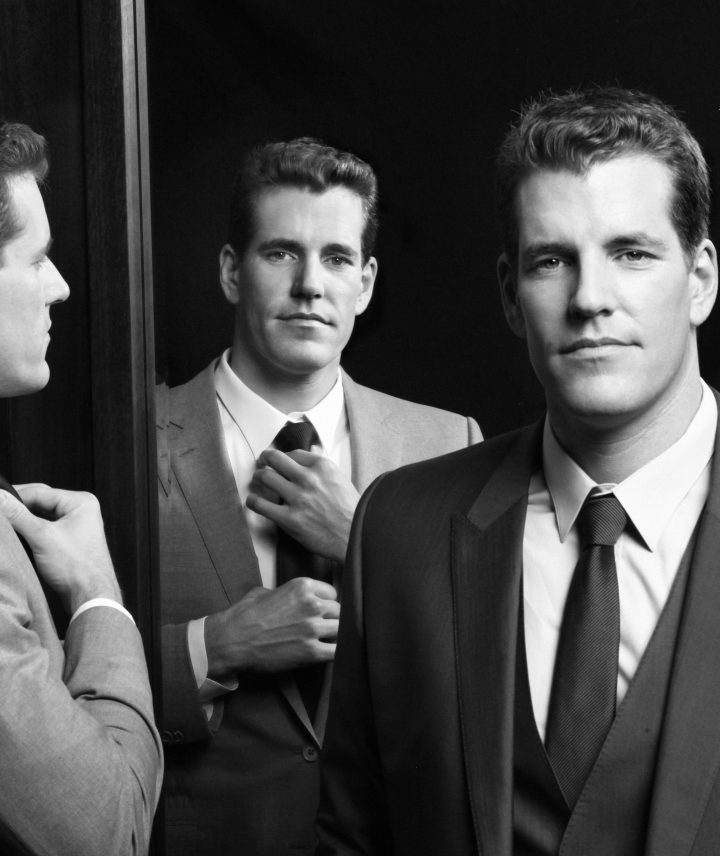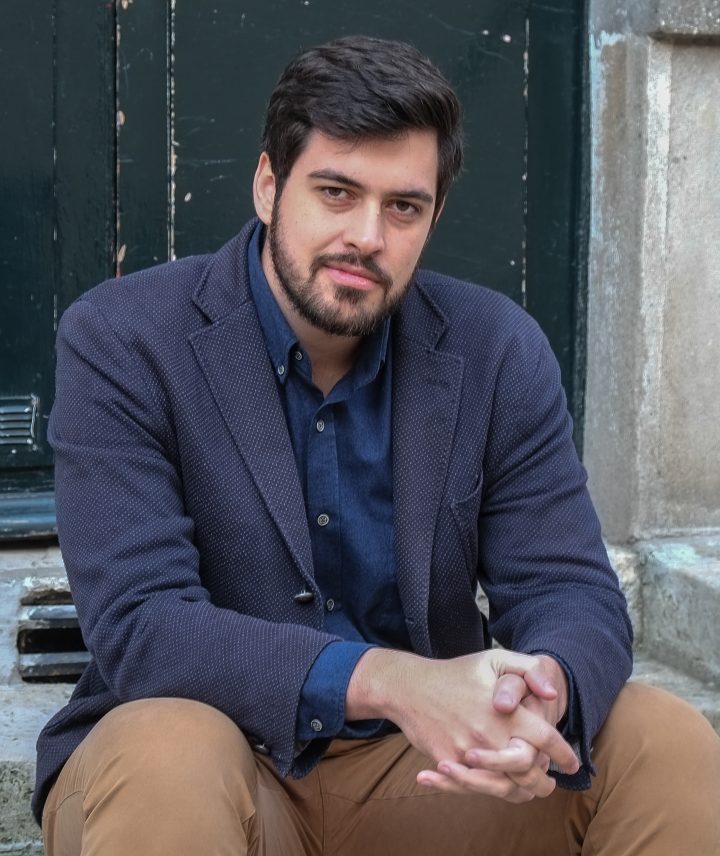Like religion and Trump, Tinder is a topic often avoided at cocktail parties. To some, it’s the epitome of hookup culture—an app on which more than 50M users evaluate one another with the simple act of a swipe. But others—including cofounder and CEO Sean Rad, as well as several couples we know personally—view Tinder differently: as an enabler of relationships that would otherwise not have existed.
“You never really know how people will use your product,” Rad explains. “Companies launch with this specific idea of a problem they’re trying to solve, but sometimes the answer is bigger… What I can say is that success, as it relates to Tinder, is the number of connections we can inspire in the world.”
Rad isn’t what you’d expect from Tinder’s CEO. He’s quietly intelligent and even a little shy, chatting amicably with coworkers while we rearrange his West Hollywood office into a temporary film set. A child of Iranian immigrants, he attended USC with his childhood best friend and Tinder cofounder, Justin Mateen, until sophomore year when he left to pursue entrepreneurship full-time. And Tinder is actually Rad’s third founder credit: He previously started a web mail service called Orgoo and an adtech company called Adly, which sold to a private equity company.
Here’s what the 30-year-old had to say about Tinder’s founding and the misconceptions of being a CEO:
